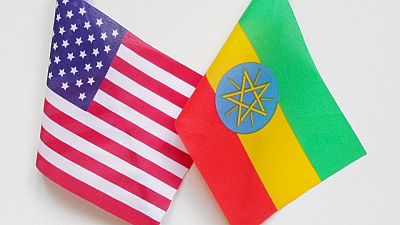Ethiopia
The United States Congress will finally vote on a human rights resolution against the Ethiopian government today as announced by a Congressman deeply involved in the process.
Rep. Mike Coffman who represents Colorado’s Sixth Congressional District tweeted last week that the House Resolution 128 will be on the floor of the House of Representatives on April 10.
He had in March tweeted about how passing the resolution will mean: “The fight for respect of human rights & inclusive governance in Ethiopia continues.”
Update: Congress slaps Ethiopia govt with House resolution 128
I'm happy to announce that after months of hard work (by all involved) #HRes128 is scheduled for a vote the week of April 9. The fight for respect of human rights & inclusive governance in #Ethiopia continues… pic.twitter.com/hF1lvOBCZs
— Rep. Mike Coffman (@RepMikeCoffman) March 21, 2018
What is the H. Res. 128 about?
H. Res. 128 is a human rights centered move with strong bipartisan support in the U.S. Congress, it has as many as 71 cosponsors.
The resolution passed the House Foreign Affairs Committee unanimously in late July 2017 and was scheduled for a vote by the full House on October 2. That vote was, however, postponed ostensibly after a protest and threat by Addis Ababa to withdraw counter-terrorism cooperation.
One of its authors, Republican Congressman Chris Smith said during the committee mark-up, the resolution is like a mirror held up to the government of Ethiopia, and it is intended to encourage them to recognize how others see them and move forward with reforms.
HRW and advocacy groups back H. Res. 128
Human Rights Watch (HRW) and a network of advocacy groups based in the U.S. have tasked the Congress to vote for the resolution to send a signal to the government that respect for and opening the political space was non-negotiable. Some of the reasons they advanced included:
1) H. Res. 128 is a signal of support for the youth in the country who have organized to peacefully demand justice and democracy and have paid a terrible price in terms of loss of life, injury and arbitrary detention. Accountability for the human rights violations that have occurred over the last 3 years will be an essential step towards genuine reconciliation and is a key demand from the protesters.
2) H. Res. 128 contains clauses that could strengthen the hand of the Prime Minister vis-a-vis less responsive segments within the EPRDF party coalition structure, requiring negotiation with the forces that control the country’s security apparatus, intelligence and the economic sectors.
3) H. Res. 128 contains clauses that call on the State Department and USAID to develop a comprehensive strategy to support improved democracy and governance in Ethiopia.
4) H. Res. 128 contains clauses that call on the Secretary of State and Secretary of Treasury to apply appropriate sanctions on individuals and organizations responsible for gross human rights.
In October 2017, a pro-democracy group, Freedom House, accused Ethiopia of literally blackmailing the U.S. Congress with a threat to withhold counter-terrorism cooperation if the vote went ahead.
Freedom House quoted Congressman Mike Coffman as confirming that Ethiopia’s ambassador in Washington has said the country will “stop counter-terrorism cooperation with the United States if Congress went ahead with a planned vote on a resolution calling for human rights protections and inclusive governance in the country (H. Res. 128).”
But the turn of events, with the vote scheduled to go ahead means that the Congress had ‘thrown out’ the threat from Addis Ababa.
Freedom House’s statement dated October 16, 2017 was titled “U.S. Congress Should Call Ethiopia’s Bluff,” with its Senior Program Officer for Africa, Joseph Badwaza, egging Congress to proceed with its efforts and discard the Ethiopian government’s “bullying tactics.”
“Passing H. Res. 128 would send a powerful message to Addis Ababa to get serious about undertaking reforms, and the Ethiopian government’s bullying tactics should not derail it. Members of Congress should call the bluff, place the resolution back on the House agenda, and approve it.
“Experience shows that Ethiopia would never follow through on the threat to halt security cooperation. The government fully understands who would be the ultimate loser if it did,” Freedom House said.














Go to video
Cuban women's volleyball team barred from Puerto Rico tournament after visa denial
02:20
John Cena and Idris Elba-starring action film "Heads of State" premieres in New York
01:00
Animal shelters in the US use live music to soothe anxious pets
00:58
Israel-Iran ceasefire appears to hold amid tensions and diplomatic juggling
Go to video
Iran rejects U.S. talks amid Intensifying war with Israel
01:18
World reacts to Israel's attacks on Iran